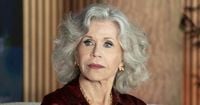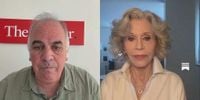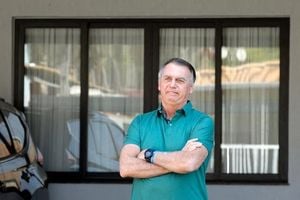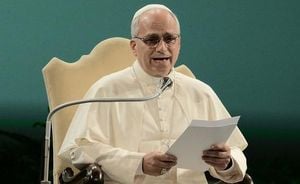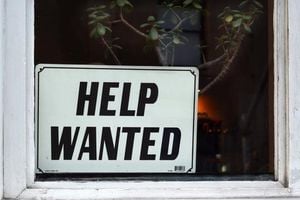Jane Fonda, the iconic actress and activist, has reignited a powerful chapter from Hollywood’s past, announcing on October 1, 2025, the revival of the Committee for the First Amendment—a group first formed in 1947 to defend free speech in the entertainment industry. This move comes at a moment when debates about censorship, government overreach, and the role of artists in democracy are once again center stage, especially following the recent suspension of late-night host Jimmy Kimmel by ABC.
The original Committee for the First Amendment was created in response to the House Un-American Activities Committee’s (HUAC) efforts to root out alleged Communist sympathizers in Hollywood. In 1947, the committee’s founders—among them Henry Fonda, Humphrey Bogart, John Huston, Lucille Ball, and Frank Sinatra—stood against Congressional hearings that targeted screenwriters and directors, most notably the group known as the Hollywood Ten. These ten individuals, including Dalton Trumbo, refused to cooperate with Congress, were jailed, and ultimately blacklisted, their careers and lives upended by accusations and suspicion that would fuel the era of McCarthyism.
Now, nearly eight decades later, Jane Fonda has brought the Committee back to life, this time with an even broader coalition. According to AP News, the mission statement for the newly revived organization has been signed by more than 550 prominent figures in Hollywood. The list reads like a who’s who of the entertainment world: Florence Pugh, Sean Penn, Billie Eilish, Pedro Pascal, Barbra Streisand, Ben Stiller, Julianne Moore, Mandy Patinkin, Melanie Griffith, Natalie Portman, Nicolas Cage, Olivia Wilde, Susan Sarandon, Viola Davis, Whoopi Goldberg, and Winona Ryder, among many others.
The timing of the relaunch is no accident. It follows the high-profile suspension of Jimmy Kimmel after his on-air comments in the wake of conservative activist Charlie Kirk’s assassination. The controversy drew calls for Kimmel’s firing from former President Donald Trump and pointed criticism from FCC Chair Brendan Carr, who reportedly told ABC, "We can do this the easy way or the hard way." The incident has become a flashpoint in ongoing debates about the boundaries of free expression, especially when government officials are seen to exert pressure on media companies.
In its mission statement, the Committee for the First Amendment doesn’t mince words: "The federal government is once again engaged in a coordinated campaign to silence critics in the government, the media, the judiciary, academia, and the entertainment industry," the statement reads. "We refuse to stand by and let that happen. Free speech and free expression are the inalienable rights of every American of all backgrounds and political beliefs—no matter how liberal or conservative you may be. The ability to criticize, question, protest, and even mock those in power is foundational to what America has always aspired to be."
Jane Fonda’s decision to revive the committee is deeply personal. Her father, Henry Fonda, was not only a founding member of the original group but also a lifelong activist, supporting Democratic candidates like John F. Kennedy. Jane herself has a storied history of protest, from opposing the Vietnam War in her youth to more recent climate activism. In 2022, she founded the Jane Fonda Climate PAC to help "climate champions" win elections at every level, and in 2019, she launched Fire Drill Fridays in Washington, D.C., a series of protests drawing attention to global warming. Fonda’s activism has come at personal cost: she spent her 82nd birthday in jail after a protest, echoing an earlier arrest in 1970 during her antiwar campaigning.
Speaking in her first interview about the committee’s reformation, Fonda told Rushfield Lunch, "The only thing that can defeat authoritarianism is people coming together in large numbers, as solidarity is unity." She reflected on the cultural shift she’s witnessed over her lifetime, noting, "Our opponents, for decades, have wanted us to praise individuality. It has been raised up on a pedestal. It wasn’t always this way. I was born in 1937, so I know a time in the United States when individualism was not the way to go. People were unified. People were together. There was a sense of common good. We have to get that back."
Fonda was clear about Hollywood’s unique position in this fight. "We’re creatives, we’re storytellers, and we should be able to model creative, nonviolent, non-cooperation methods of resisting authoritarianism," she said. "That’s what we do. Freedom is essential to artists. It’s in our blood. We can’t function without the freedom of expression and of speech. So let’s get together in large numbers, and let’s find creative ways to ridicule the awfulness that is happening."
While the committee’s plans are still taking shape, Fonda emphasized that the goal isn’t just to build another organization, but rather to spark a movement. She warned, "Our democracy will fail if we continue on the ethos of every person for themselves. Strength in numbers. They come for one, darn it, they’re going to come for all of us." The sentiment echoes the original committee’s call for collective action, but with a modern urgency that reflects today’s political and cultural climate.
The history of the original Committee for the First Amendment is both inspiring and cautionary. While its members were initially lauded for their stand against HUAC, the group quickly became mired in controversy. Some, like Bogart, found themselves accused of Communist sympathies, and by 1948, Bogart published an essay in Photoplay magazine titled "I'm No Communist," cautioning that "actors and actresses always go overboard about things" and warning against being "used as dupes by Commie organizations." The Hollywood Ten, meanwhile, were jailed and blacklisted, with the shadow of suspicion lingering over Hollywood for years.
Fonda’s activism today is also informed by her recent work on climate change. In a 2024 interview with CBS News, she said, "This isn’t just about the environment. This is about the whole planet." Her willingness to risk arrest and her tireless advocacy have made her both a celebrated and controversial figure—much like her father and the original committee members before her.
The revived Committee for the First Amendment stands as both a tribute to Hollywood’s history of resistance and a rallying cry for the present. As debates over free speech, artistic freedom, and government power intensify, Fonda and her allies are betting that solidarity—and a little creative rabble-rousing—can make a difference once again.
In a time when the stakes for free expression feel as high as ever, the Committee’s return is a reminder that the struggle to defend the right to speak out is never really over. For Fonda and the hundreds who have joined her, the message is clear: they refuse to stand by and let silence win.
